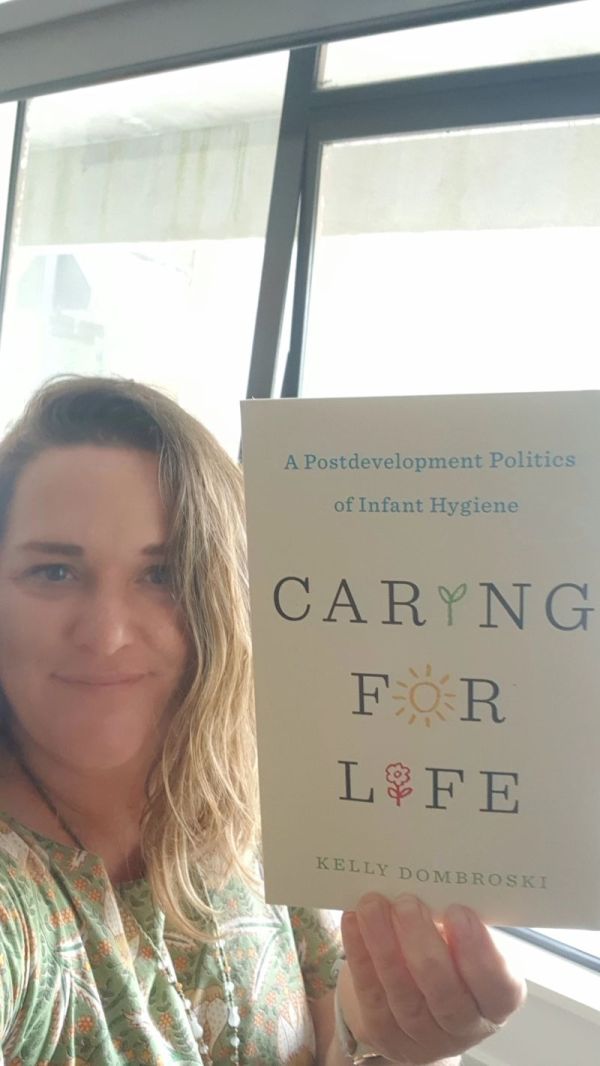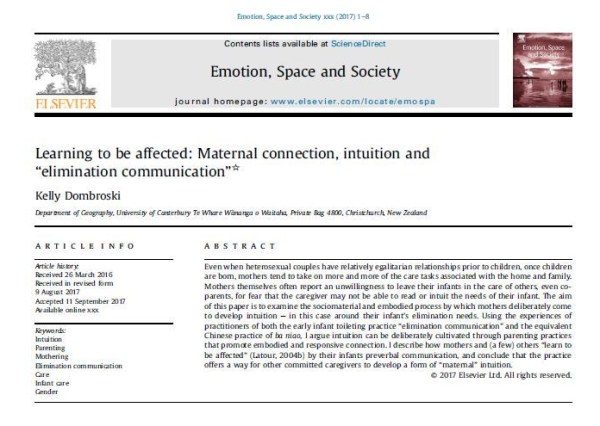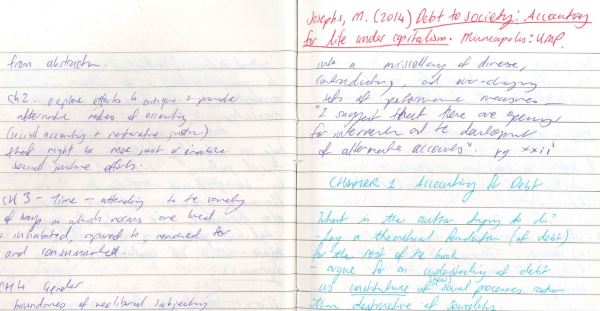Do you ever feel like it is just so pointless to write academic articles, books, and commentaries?
Caring for life: the book that is finally here
Wow! Thank you to those of you who have stuck with me for TEN years now. This blog is 10 years old and the BOOK that I have been working on for all that time is finally for real. The final stages of the book included spending August of 2022 recieving NO meetings zoom or... Continue Reading →
University skills: Doing your first geography assessment
Beginning your first assessment in university human geography can be daunting. But here is a step-by-step guide to getting started.
Getting your PhD (back) on track 3: getting the right kind of feedback
How do you get the right kind of feedback from your supervisor? There isn't one right answer but in this post I point you in the direction of some resources to help you get started.
Getting your PhD (back) on track 2: other tasks
In my PhD workshops, there are also plenty of students who can do the deep work, but struggle to get all the other tasks done that ensure they can complete their PhD. This includes organising meetings, organising interviews or data collection, calling people on the phone, getting progress reports completed, organising childcare and assisting their... Continue Reading →
Getting your PhD (back) on track 1: Deep work and focus
Recently I gave a workshop about getting your PhD on track -- or back on track, for those who have had some delays and detours due to COVID-19 and the usual crises and distractions that accompany PhDs. It seemed clear to me that I could not get anyone's PhD back on track in a mere... Continue Reading →
“I do everything they say but my supervisor is never satisfied”
I have run five 'finish your dissertation' groups in my time as an academic, and it is such a privilege to get insight into the thesis process from a group of students who I am NOT supervising. One thing I hear from students is that they do 'everything' their supervisor tells them to, but the... Continue Reading →
Collective Strategies for Deep Work
In a previous post reviewing Cal Newport's book Deep Work I promised I would write a post sharing more collective strategies for enabling deep work, in particular for people with heavy care-loads. I suggested that sometimes the consequences are different for women trying to draw a line around their deep work time, and I imagine... Continue Reading →
The Invisible Gender of Deep Work
A book review of Cal Newport's Deep Work: Rules for Focused Success in a Distracted World, 2016, London: Little Brown. It's no secret that many of us find it difficult to find space to do the deep thinking that we need to push forward our work -- our paid work, but also our self-work, or... Continue Reading →
An article six years in the making…
I am just so ridiculously pleased to finally have this article out. I first presented the material that became this article in July 2011 in Sydney, Australia. I have been on two writing retreats where I've worked at least in part on this article. I have rewritten it countless times into three or four different... Continue Reading →
How to do slow reading
My previous post 'slow scholarship starts with slow reading' prompted some questions around slow reading. What do I really mean by slow reading, and how do we do it? It is, I acknowledge, much more than not being distracted. Although I blog, am an avid user of evernote, use Goodreads, and keep all my references... Continue Reading →
Slow Scholarship starts with Slow Reading
I wonder if you know the feeling: You have a few hours, or a day, to get some writing done -- to get it finished, in fact! You have been longing for this for weeks, perhaps months. You sit in front of your computer, open your document and immediately find it hard to connect with... Continue Reading →
Writing your Book Proposal II: What happens after submitting your proposal?
After submitting your proposal, it's time for the waiting game. It will go to peer review, then you will need to respond, then it might go before a board, all before it is time to organise the advance contract. 1. Peer Review For most good academic publishers, after your book proposal is received it is... Continue Reading →
Writing a book proposal I: From concept to submission
Publishing an academic book is a bit different from publishing a novel, I'm told. All I can do is tell you the process I went through, and offer suggestions on how to make this smoother. I have written three book proposals for three different publishers, submitted two of them, and been accepted by one. Each... Continue Reading →
Turning your PhD into a book
As I was racing to the submission finish line with my PhD thesis, I constantly doubted whether certain sections were 'done' or 'good enough'. One of the most common pieces of feedback I'd get from my supervisor was 'save it for the book'. Well, now that moment has come. And I can't for the life... Continue Reading →
Writing for Research II: Writing as an iterative process
Yesterday, I wrote about writing as a learned skill. Today we move on to thinking about writing as an iterative process. One of the biggest mistakes that graduate students make is thinking that writing their thesis or research paper is going to be like writing an undergraduate essay. That is, they will sit down with... Continue Reading →
Writing for Research I: Writing is a learned skill
I recently gave a class on writing for research to a wonderful group of health science postgraduate students. It was a great opportunity to gather some of my ideas about writing for research, and to offer a condensed version of what I try to teach my thesis students over their thesis writing period. My... Continue Reading →
Being a Public Intellectual
Today I was interviewed by a PhD scholar researching 'public' geographers and public intellectuals more generally. I'm not sure if I was being researched as an actual public geographer, or as a group of people with views about public geography, but it did get me thinking about what we do and who we are aiming... Continue Reading →
You Won’t Believe How These New Zealand Undergraduates Email Their Lecturers
My tongue-in-cheek clickbait title is meant to illustrate via awkward engagement how inappropriate the norms of social media are to academia. Nowhere is this more obvious than when students try to email me. Here's a recent example* I reproduce in full: Hi I missed my second lab and I think the Cencus data for completely assignment... Continue Reading →
On writing: Spew drafts in the Phd process
I have recently been working through a book with some PhD students in my department. The book is Alison B Miller's Finish Your Dissertation Once and For All! How to overcome psychological barriers, get results, and move on with your life., which I cannot recommend highly enough. One of the chapters in this book is... Continue Reading →




















